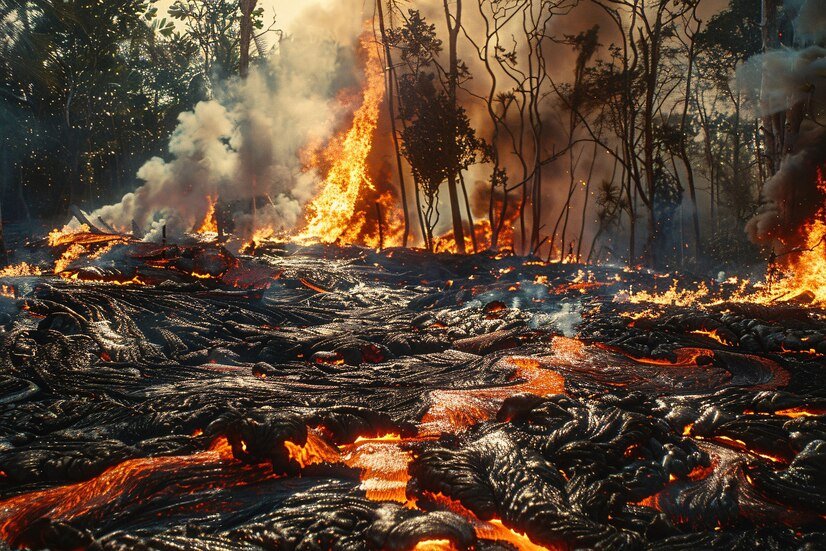The BlueFire Wilderness Lawsuit: What You Need To Know

Table of Contents
Introduction
Over the past months, The BlueFire Wilderness lawsuit has gotten quite the buzz and increased the level of conversations around outdoor therapeutic programs and their operations. BlueFire Wilderness Therapy is known for offering adventure-based therapy to troubled teens but now the company is embroiled in controversies due to allegations raised in the case. Although wilderness therapy programs have been regarded as a good treatment for adolescents who had issues of one kind or the other, the BlueFire Wilderness lawsuit raised questions regarding some procedures used by certain practitioners in the field.
In this article, we focus on the key pertinent issues regarding the BlueFire Wilderness lawsuit, who the plaintiffs were and what the implications of such a case are for parents and participants. Additionally, some questions that were raised will also be answered as well as the conclusions concerning the stage and prospects of the case today and in the future.
Who is Behind The BlueFire Wilderness Lawsuit?
The BlueFire Wilderness lawsuit in one way or another relates to the case against BlueFire Wilderness lawsuit was filed by previous clients of the program and their relatives who claim that the program was detrimental to their participants and its objectives. They mention cases of BlueFire Wilderness’ negligence toward impressionable teenagers, abuse, and ill-service to those who needed assistance the most. In the complaint, it was stated that the participants suffered from extreme torture, emotions, and lack of adequate care during the course of the program.
BlueFire Wilderness, whose headquarters are located in Idaho, presents itself as a restorative place in which adolescents are able to reconnect with themselves through the natural environment. But, the document says that the promises extended in the program are not beefed with facts and hence caused severe emotional distress and physical injury.
Key Allegations in the BlueFire Wilderness Lawsuit
There are several serious allegations in the lawsuit against Blue Fire Wilderness. Some of these include:
- Negligence: This lawsuit places liability on BlueFire Wilderness for not giving the attention and care that teenagers who have PTSD and other underlying issues require.
- Miscalculation of Emotional Trauma: The plaintiffs argue that the program was not structured with enough resources to rehabilitate or supervise extremely distressed members, which, in fact, worsened the situation for one or two members.
- Poor Living Conditions: The BlueFire Wilderness lawsuit also brought forth the issue of low living standards among the participants due to lack of sufficient food, inadequate accommodation, and very dangerous activities.
- Employment of Incompetent Personnel: In the suit against BlueFire Wilderness lawsuit, it is also alleged that they employed a workforce that was hardly equipped to handle the distinct issues that adolescents who engage in that program face.
- False Promotion: It has been alleged in the lawsuit that the program was not as benign and convincing as it has always been presented and advertised as.
Effect of BlueFire Wilderness and its Lawsuit
The BlueFire Wilderness lawsuit case has widened the lens of perspectives in regards to wilderness therapy all over the US. With the allegations coming up, parents and guardians seem to be beginning to doubt the credibility and the safety of these programs. As for the BlueFire Wilderness lawsuit , this lawsuit has dealt a heavy blow to its reputation and some families have even been looking into other alternatives to help their children enroll.
The lawsuit has the potential to bring about stricter guidelines and a greater level of control regarding how wilderness therapy programs operate. Should the BlueFire Wilderness lawsuit be found liable, it has been projected that the organization will face serious financial loss as well as damage to its reputation. In the lifeload leading to so much loss, it has been suggested that the program would be closed down altogether.

Conclusion
The case surrounding the BlueFire Wilderness lawsuit has also managed to focus the spotlight on key issues that relate to wilderness therapy programs. Although these programs have the capability of helping adolescents in many youthful pursuits, the issues of this particular case illustrate how oversight and accountability can never be ignored. Parents need to exhaustively investigate any program they intend to place their children in and make sure it is adequately monitored and run by competent personnel.
The continuing case will number key developments that will afford individuals the opportunity to monitor how legal decisions or settlements regarding the case would affect the operation of wilderness therapy programs in the United States.
FAQ
Q1. What does the BlueFire Wilderness lawsuit entail?
A1. The BlueFire Wilderness lawsuit program, which is intended for adolescents who are under stress, has been accused of negligence, emotional abuse, and holding unreasonably dangerous conditions.
Q2. Who was motivated to file the suit and why?
A2. Former program participants and families have raised allegations over the program’s mistreatment of them causing them emotional as well as physical abuse.
Q3. What are some of the main allegations present in the BlueFire Wilderness case?
A3. The primary claims include negligence, unsafe conditions of residence, and lack of training of the staff.
Q4. What is the relation of this lawsuit and the effects that wilderness therapy programs will experience?
A4. If the complainants prevail in the case of the BlueFire Wilderness lawsuit, such facilities may have to operate under more stringent requirements and federal oversight at a much higher level than before.
Q5. In parents’ views, what measures should be put in place before sending their child to a wilderness therapy program?
A5. Proper and appropriate decisions should be made by parents regarding the appropriate programs for their troubled teenagers. Parents should do research and look for such accredited programs that have trained professionals.







